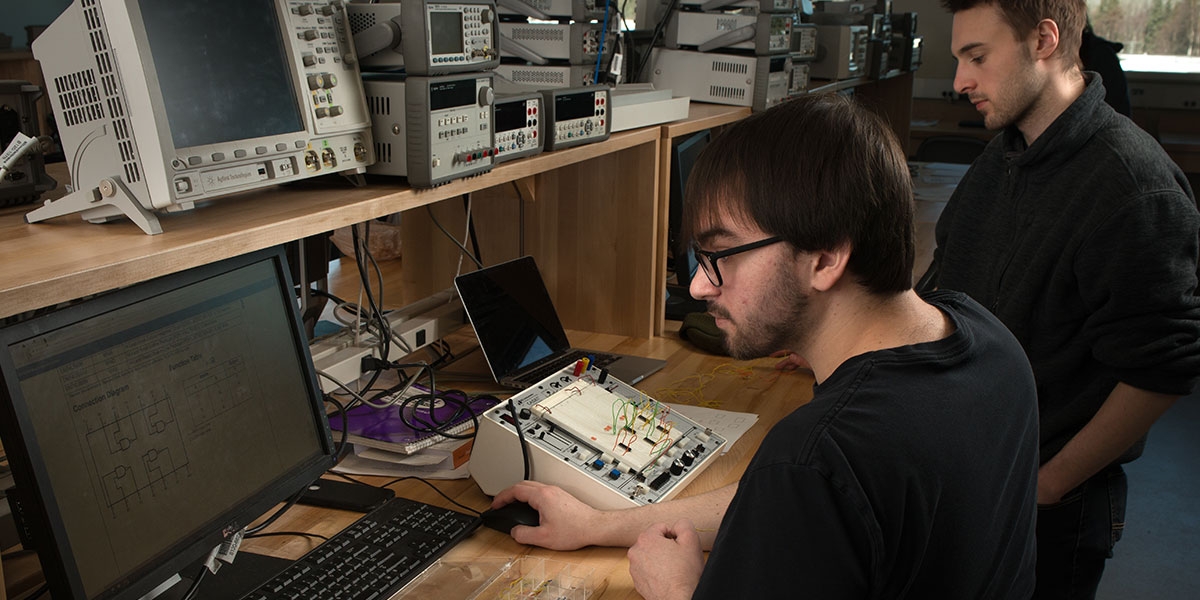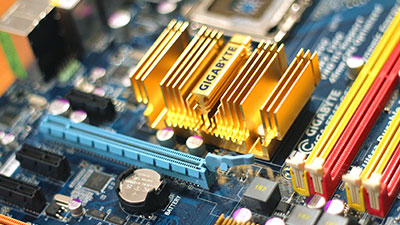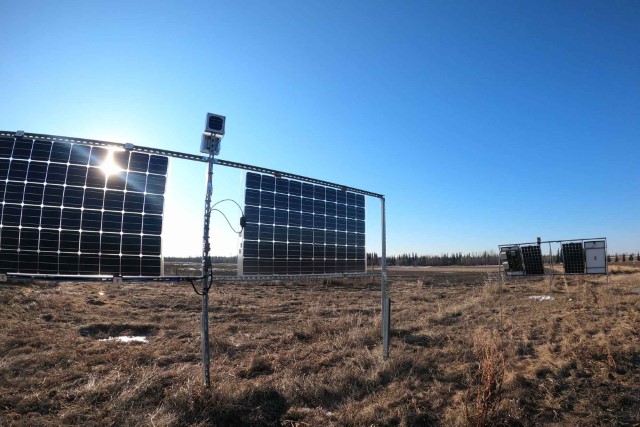Electrical engineering B.S.
Explore the electrical engineering bachelor’s degree program at the University of Alaska Anchorage
With cutting-edge research opportunities, state-of-the-art facilities and expert faculty, the electrical engineering bachelor’s degree program at UAA will prepare you for engineering jobs in Alaska and around the world. The program covers electrical engineering fundamentals such as circuits, signals and systems, controls, communications, electromagnetics, energy and energy conversion. We also offer elective courses in networking, computers, software development, digital systems and power.Networking and professional opportunities
Anchorage is home to a large number of engineering and technical professionals. At UAA, you’ll have unique access to this professional network through national engineering chapters and other career-building opportunities. Major annual events include Women in Engineering Night (a dinner and networking event that takes place on campus each fall) and the annual Anchorage Engineers Week festivities held each February.
Labs and facilities
UAA has five labs dedicated to electrical engineering that provide research and teaching space for electromagnetics, general electrical engineering, electrical power and utility and radio frequency investigation. The Engineering and Industry Building also features a Radome. Labs are equipped with A/V technology for teaching laboratory sessions. Learn more about UAA’s Engineering and Industry Building.
Electrical engineering scholarships and financial aid
Get help with tuition and education expenses. UAA offers a variety of scholarships and other types of financial assistance you may qualify for as an electrical engineering major. Learn more about financial aid opportunities at UAA.
What can you do with an electrical engineering degree from UAA?
Electrical engineering is a broad field that offers career options in a wide variety
of industries. Many bachelor’s degree alumni also pursue advanced study at UAA and
other top graduate schools.
Electrical engineering graduate programs
UAA alumni have gone on to attain master’s degrees and doctorates from institutions
such as Dartmouth, Ohio State University, the University of Florida, the University
of New Mexico and Utah State. UAA also offers the following graduate-level engineering
programs:
- Master of Science in Civil Engineering
- Master of Science in Mechanical Engineering
Electrical engineering careers
In Alaska, careers involving communications and power are in high demand. Graduates
of UAA’s electrical engineering program often find employment in these industries
as well as with the many engineering consulting firms in and around Anchorage. Alumni
have also found employment across the United States with companies such as Tesla,
Intel, Microsoft and Garmin, as well as several energy companies in Utah and Arizona.
By the numbers..
Electrical engineering bachelor’s degree program curriculum
The program starts by introducing the principles of mathematics, chemistry and physics, as well as basic circuit theory, digital logic and electrical devices. From there you’ll move on to fundamental electrical engineering concepts such as signal analysis, electromagnetism, instrumentation and telecommunication. In your final year you’ll focus on electrical engineering analysis and design, with upper-division electives in computer design, antenna theory, communication theory, power and control systems.Top classes for electrical engineering majors
- Electromagnetics: In this course you will learn about electrostatics, magnetostatics, Maxwell's equations, electromagnetic wave propagation and transmission lines.
- MATLAB for Electrical Engineers: Programming skills and MATLAB are introduced to solve problems in various electrical engineering focus areas.
- Design of Electrical Engineering Systems: In this capstone course you’ll work in small groups to solve an engineering design problem. Groups will develop and investigate multiple engineering solutions to their problem, build a prototype of their best solution and analyze the performance of that prototype.
















